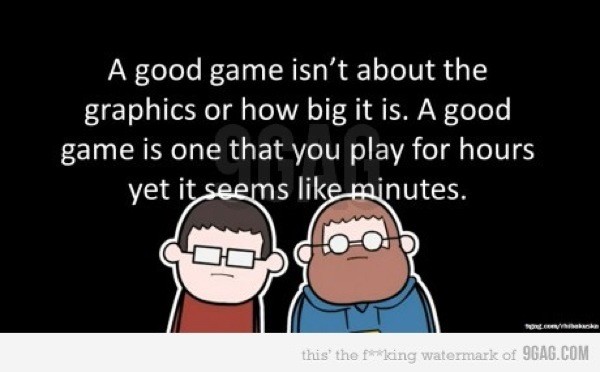So are you saying the essential quality of an RPG is numerical stat allocation at character creation? That is, Ultima VII isn’t an.
I know, but that’s my point. This is a philosophical discussion about the essential nature of a sophisticated social artifact. It’s bound to generate controversy and disagreement due to its own nature. I don’t think that all cRPG developers out there have a clear view of their own genre, which probably explains why so many cRPGs are so bad. I don’t think that appealing to names will settle anything. Ultima VII isn’t a cRPG according to this criterion, but Realms of Arkania is, Wizardry is, Baldur’s Gate is, Fallout is, Underrail is, etc. Any way you look at it, character creation and stat governed gameplay are essential to cRPGs.
I think you're a smart dude, but this is just question begging. I ask, "Do you consider X an essential element of RPGs?" Your answer by wanting to discuss whether elements A, B, C, or D are essential to various other media. We disagree about those other media.
The point I was trying to make is that you one can plausibly argue that works in different mediums don’t satisfy the criteria to be classified as such even if they are recognised by the canon in their respective domains. There is no reason to assume that this occurs in other mediums and that cRPGs should be an exception. To assume that cRPGs should be an exception to the norm and that references to canon are automatic counterexamples is question-begging.
(Obviously, a game without challenge is still a game -- the overwhelming majority of board games I played as a kid contained no challenge, for instance, and it's stupid to claim that, say, Chutes and Ladders isn't a game. Likewise, when I play basketball against my kids, there's no challenge but it's plainly still a game. If not, what is it?)
There is nothing obvious about it. I can use a chair as a weapon. That doesn’t change the nature of the chair into something else. Besides, there is significant literature about the nature of games that you need to read before you can make a compelling argument about the topic. I would advise you to start with Bernard Suits “
What Is a Game?”, which is a classic paper about the topic published in 1967(!) His position is that a game is an attempt to surpass unnecessary challenges. I agree with him. It makes perfect sense, but the discussion advanced so much along the years that they probably offered a different essentialist definition at this point.
But even if we agreed, you don't offer any reason why number-allocation-character-creation:RPGs :: argument:theory. No can I guess at such a reason.
Why Ultima would offer you builds to choose if builds were completely irrelevant for cRPGs? Is there any reason to assume that character building should be optional in cRPGs given their predominance in the P&P roots?
Taking the position that Ultima VII (#30 on Codex's list!) is not an RPG at all (or is "pointless" as an RPG) seems to me discrediting to your position, not mine.
Alpha Protocol is placed 29 on the top 70 cRPGs. It must be good then, because the list says so. Duchamp’s urinol is widely acclaimed as an original work of art. It must be then, because the critics say so. Andy Warhol’s empire has no actors and plot, but the critics say it’s a film, so it must be so. This type of reasoning may sound compelling to a person that gives too much importance to pedigree or an appearance of consensus. It makes no difference to me.
I'd also point out that, while it has been many years since I played P&P RPGs, the versions of D&D that I played did not have point-allocation character creation. Your stats were randomly assigned to you (via dice rolls) and then the player's job was to pick a class that worked with those stats. In other words, it was in some ways the inversion of what I'm talking about -- the game asserts, "These are your stats!" and then I would say, "I interpret those as a clumsy cleric." It's an approach different from what you say is the sine qua non and what I'm proposing, but since it doesn't have your essential feature, I guess you'd have to say it's not an RPG?
The Greeks did metaphysics and physics all on one, so the contemporary definition of physics must include metaphysics then. Most modern scientists would consider astrology and alchemy sciences, so contemporary scientists should think the same. The first airplane was made out of a kite, so the essence of airplanes is being made out of kites. You can’t describe the essential nature of something by pointing to examples like that. It’s much more complicated than that. I understand why you feel so entitled to dismiss character building was it was something optional. You can find whatever that is labeled as a cRPG and it doesn’t have it to prove your claim. But it is more complicated than that.
I'd say that playing an RPG without numerical allocation of stats is like playing a racing game without numerical allocation of stats. Some racing games let you design your vehicle in absurd detail; some racing games don't let you design your vehicle at all; some racing games let you pick from a few preset vehicles; some racing games let you choose from a few preset vehicles and then modify some parts. The point of the game is to race. Likewise, the very name "role-playing game" (not "role-crafting game") suggests that the truly essential quality is what the game permits you to do with your character, not the level of control it gives you over defining that character at the outset.
That’s also an important element of a cRPG, but if cRPGs can be whatever the hell some developer did, or whatever the hell the Codex list says so, then you can’t make this claim because I can present plenty of linear “cRPGs” that are widely acclaimed to prove my point. The essence of a genre is no laughing matter. It will orient what guidelines developers will use, and which features they will emphasize. It can make or break a game.

















